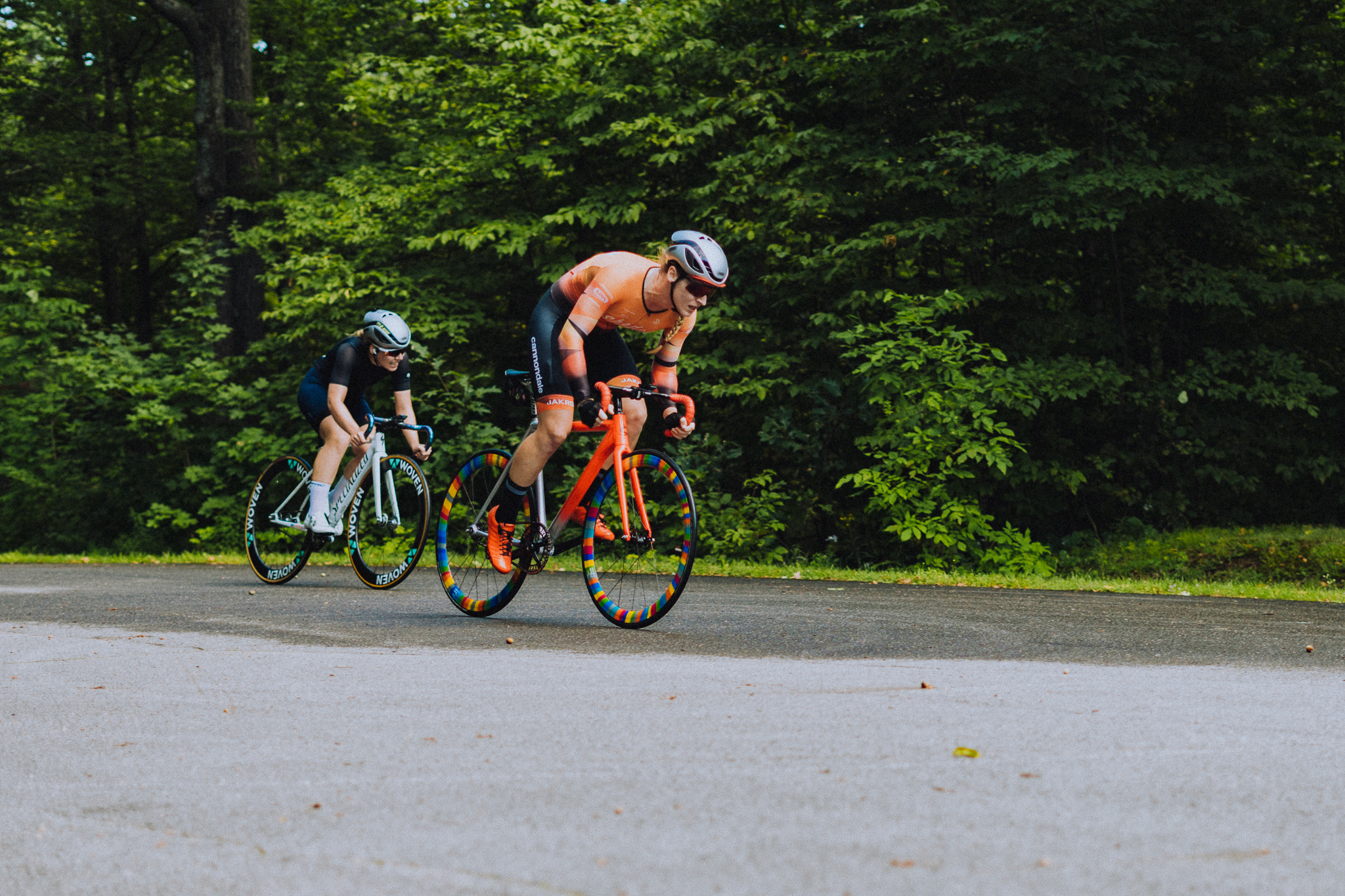
By Kieran Heffernan
Ottawa’s Evelyn Sifton might spend 20-plus hours a week training, but she still considers bike racing just a hobby.
Sifton has been cycling competitively since 2017 and is currently a member of the Shadow Elite Racing racing team, which she rides with mostly in Canada and the U.S., as she manages her day job in the film and television industry.
But, when she came out as a trans woman, she wasn’t sure if she’d be able to keep racing at all.
“I love racing. And so to give that up would suck, but at the time I was ready to,” she said. “I didn’t think it was something I’d be able to do, so I’m very fortunate and very happy and thankful that I’m able to continue competing, as well as be myself.”
Sifton came out in 2014, and had been a triathlete until a friend asked her to try a fixed gear criterium race. She finds cycling to be a bit more accepting than triathlon was, where she faced some pushback as a trans athlete.
“Triathlon is a money sport,” she said. “There’s just a lot more privilege in that sport, I want to say. And so with that tends to come more conservative attitudes.”
Not everyone has been supportive in cycling either, though.
“It’s funny, it’s mostly people who aren’t involved in the sport that have a problem with it, or it’s a lot of men involved in the sport who have a problem with it. But the women I race with don’t care and they’re all in favour of it,” she said, but added that there are a small number of vocal female athletes who don’t support her participation as well.
People only start to take issue with trans women athletes when they do well, such as with two-time world cycling champion Rachel McKinnon, Sifton said.
“They didn’t care when we were racing and we weren’t winning, but as soon as a trans woman won something, people started caring more and there was more pushback.”
Sifton has experienced something similar herself. When she won the Houston Grand Crit in May 2019, she faced backlash online and had her personal information posted. Knowing that whenever she does well, she’ll be met with criticism can take a mental toll.
“There’s that little bit nagging thing in the back of your mind that’s like, do you want to deal with this? Do you want to deal with the shit that’s going to get on the internet if you get on the podium again?” she said. “But then you have to remember, no, I will put up with that hassle so that I can have that photo of me on any step of a podium, and hopefully show some future trans athlete that yeah, trans people can be on the podium and trans people can race.”
Sifton has been very open about her experiences and identity. She’s guest lectured at Algonquin College, and spoken at a high school and to a Girl Guides troop. Plus, she races on rainbow wheels. She knows first-hand the impact that having visible role models can have.

“When I first came out, I had those stories to look up to. Chris Mosier is one of my biggest influences in my life because he was the only out trans athlete competing at a high level at the time when I came out.”
“I’ve met a lot of kids who have told me that they’re in similar situations to what I was several years ago,” she added. “I’ve had people come up to me at races and say I didn’t think I would ever get back into racing after I transitioned, but I think I’m going to start racing again.”
Compared to when she first started cycling, she does think people have become more understanding and accepting overall. And as a result, it seems like more trans people are participating in sport.
“Those athletes who would have been scared to ever return to competition, or didn’t think it was safe to, or didn’t think it was allowed, those athletes can now feel safe and comfortable, and I think that’s a good sign of progress,” she said.
One thing Sifton makes a point of talking about is the strict rules that trans women must follow in order to compete, as set out by the International Olympic Committee.
“I’m regularly tested for my hormone levels for racing. I’m probably the most drug tested athlete I know because of my hormone testing,” she said. “People don’t understand that. People are just like oh, they can just show up and win.”
“We follow an incredibly strict rule set that was approved by top sports scientists and doctors. So, the framework is there to make it fair.”
HELP SHINE A LIGHT ON LOCAL SPORT! The Ottawa Sports Pages is a not-for-profit organization committed to providing a voice for local sport. You can offer valuable support for our work with a tax-deductible charitable donation to the Ottawa Sports Pages Fund via OCF-FCO.ca/Ottawa-Sports-Pages-Fund today. 


